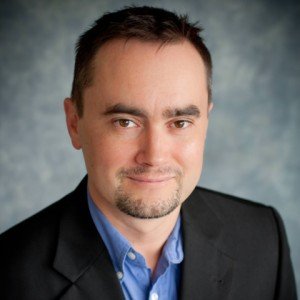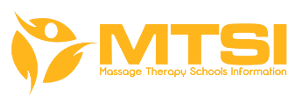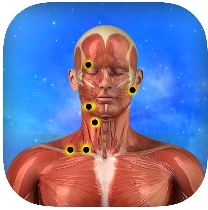
I had a busy home office in downtown Vancouver from 2000 through 2009. I charged a premium rate and marketed myself as a troubleshooter of tough pain problems.
There was always a strong educational element in my practice, but I also believed strongly in delivering a very satisfying massage experience as well. As a male practitioner in a home office, it was a slow start, but what I offered really seemed to catch on and I had a huge waiting list for the last few years.
2. Tell us why you chose to go into massage and at what point in your life did you decide to do so? What were you doing at the time? Where did you first hear about the massage career? What factors influenced your decision? What were you looking to get out of this decision?
In my mid-twenties I was crashing and burning as a failed author and impractical idealist. I chose massage therapy in an epic brainstorming session about how to get my life sorted out. I was attracted to it as a job that could be both fulfilling, and yet also flexible and profitable enough to be a high quality “day job” as I continued to try to figure out how to be a writer. That worked out.
3. What were some of your questions and concerns before further pursuing your massage therapy goals? Talk about concerns with school and the profession itself.
I had no concerns at the time, honestly: I was all in. I should have had concerns. I should have been concerned about the exorbitant cost of the training in BC, the sustainability of the profession, and the professionalism of the profession.
4. What is your specialty and what are the top three contributing factors to your success today?
I focused on repetitive strain injuries and back pain. I attribute my success to knowing exactly what kind of client I wanted, being obsessive about continuing academic education so that I could be as useful as possible to those clients, and trying to always delivering a good quality pleasant massage experience regardless.
5. What do you like about your specialty? What do you like about what you do in general as a career? Why?
I love the fact that there’s still so much genuine mystery about how repetitive strain injuries work. It’s a great puzzle. I loved working on that puzzle, and talking to people about it, and helping people feel better about life for an hour whether I could treat their painful problem or not.
6. What do you not like about what you do? Why?
It was exhausting, of course, and income was exactly and only proportionate to the (intense) effort. And I became extremely frustrated with the prevalence of pseudoscience and quackery in the profession. In time I came to feel that I was a member of a embarrassingly amateurish profession that had little understanding of or respect for the astonishing progress made in health care over the last few centuries.
7. If there were three things you could change about your work or the industry as a whole what would they be? Why would you change them? What would you change them to?
My greatest wish for massage therapy is for it to be a more progressive, modern health care profession that works in concert with science and medicine. I’d like to see more training across the board, more academic education, and much less focus on technique and modality.
8. How long do you plan to practice and what do you plan to do after?
I am already there: I have a terrific new career as a writer, and the publisher of SaveYourself.ca.
9. Do you currently have another job or business whether full time or part time? Tell us a bit more about it and how you are able to juggle that with your massage career?
I built my writing career and publishing business in my so-called spare time while I was practicing massage. I started working on it seriously in about 2005. I worked about 80-100 hours per week on both businesses until 2010 before switching to just the writing and publishing. Massage therapy was flexible enough to make this possible. It was straightforward: just put in an completely unreasonable number of hours.
10. What are some mistakes you made in your career pursuit that you’d like to warn other students about so they can learn from your experience and avoid it?
I really wish I’d realized some of my knowledge limitations sooner. It was a good couple years before I realized just how little I new about back pain, for instance, even though I’d been treating patients with back pain regularly all along. I deeply regret some of the shallow, shabby advice I gave to those early clients. If I could do it all again, I would have taken a break for a few months after school and then hit the books again, lifelong learning, never-ending school.
11. What would you advice someone who is looking at massage therapy schools? What do you recommend they look for and how? How do you recommend they determine whether the school is the right one for them?
You get out of all schooling only what you invest in it. The school is unimportant: your effort and attitude is what counts.
12. What do you recommend for someone who wants to go to massage school but cannot afford it?
Treat it like a business investment. Borrowing to afford the education is an acceptable way to get things going, just like any other business, but only if you’re confident in your business plan and your dedication to it. Massage is a “calling.”
13. What are your three biggest points of advice for an aspiring massage therapist today? What should they do/not do? What should they think about and consider?
1. Knowledge is the best way to distinguish yourself in the marketplace. Learn learn learn learn learn.
2. Do not try to “fix” people – focus on giving the nervous system sensory data to work with, not on changing their flesh.
3. Provide health care that is personal and compassionate; not anti-science.
14. Any open thoughts / comments – anything else that you’d like to share about yourself, the massage industry, profession, future, etc? If nothing, make one prediction for the future of massage?
I love massage itself, but I am deeply concerned that the profession is doomed to a well-earned reputation for flakiness. Starting in the mid-2000’s, I stuck my neck out and publicly criticized some common shabby practices in alternative health care. I was vilified and attacked for having an opinion about what constitutes good health care and good massage therapy, and I still am today. I believe the profession needs to mature and learn to embrace criticism: self-doubt is the main pre-requisite for self-improvement.
15. What is your passion outside of massage? What are your hobbies and interests which you pursue when you are not working? Tell us why you enjoy what you enjoy.
I am a somewhat serious runner and athlete, a big science fiction dork, and a technology hobbyist.
Paul Ingraham is a registered massage therapist and works full time as a science writer on his own publishing platforms. You can reach Paul on his main website www.PainScience.com as well as on his personal blog at www.PaulIngraham.com.








Leave a Reply